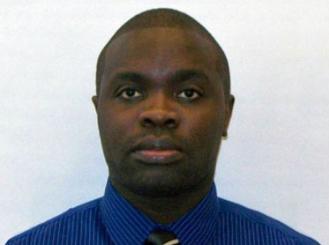Whenever I ask a team of health care professionals who the members of their cancer multidisciplinary team are, they always name medical oncologists, surgical oncologists, radiation oncologists, nursing, palliative care, speech therapists, radiologists, pharmacists, pathologists, etc. However, my experiences in treating patients with cancer in sub-Saharan Africa made me expand that list.
Case 1: A patient with a head-and-neck mass comes to the cancer clinic for a consultation. He sits at the waiting area for his turn to see the doctor. Due to the huge numbers of clinic patients, averaging 100 per clinic day, it takes 2 to 3 hours for the patient to be seen. During this time, the patient goes through all sorts of emotions and has a great need for reassurance.
He then turns to the only clinic staff who is constantly around—the janitor—and asks, “Have you seen any patients like me here at this clinic being treated?”
“Yes,” the janitor answers.
The next and most important question is asked: “How did they do? Did they get cured?”
Case 2: A patient with a huge abdominal mass is on the queue waiting to be seen. Also on the queue is someone looking like a patient, but it’s a traditional healer, looking for people to convince and channel to his herbal clinic. The janitor knows him because he comes on every clinic day but doesn’t see the doctor.
In both cases, I quickly realized including the janitor in the cancer multidisciplinary team would lead to improved outcomes. The janitor needs to know that there are different types of cancers, that some are curable, that biopsy is important in diagnosis, that patient outcomes depend on the stage of cancer, and above all, that they are IMPORTANT to the team!
Learn more about how you can support World Cancer Day.
Dr. Asirwa is a principal investigator at Indiana University-Moi University’s AMPATH Oncology and Hematology, Executive Director of Beacon Health Services in Kenya, Assistant Clinical Professor of Medicine at Indiana University, and Field Director of Hematology and Oncology Programs at AMPATH at the Indiana University School of Medicine.
Read more posts in ASCO Connection’s blog series on World Cancer Day:
- World Cancer Day: “We Can” and We Will Make a Difference
- Challenging the Myths About Cancer, Causes, and Care
- Medical Students as Agents of Change
- Hello from Lagos, Nigeria
- Creating Healthy Environments in Pursuit of Cancer Prevention
- Preventing Cancer: Genes Do Not Dictate Our Fate
- Work Together for Increased Impact
- We Can Mobilise Our Networks: Approval or Coverage for Oral Cancer Medications in Brazil



Recent posts